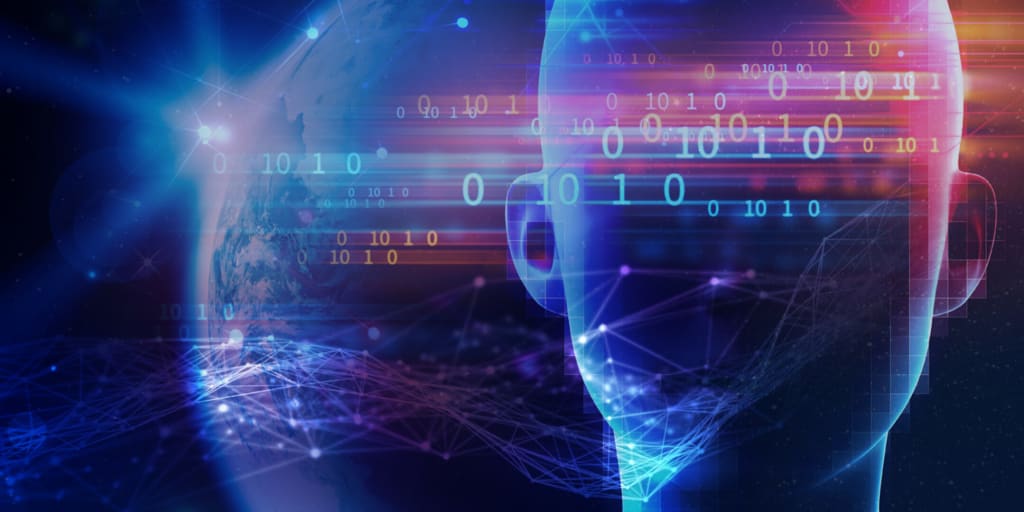Quantum computers and love
In the Netflix series The One, the code is cracked on matching two people perfectly. Will AI (aided by quantum computing) provide a similar service sometime in the future.

In the Netflix series The One, geneticists crack the biological code that bonds two human beings into the perfect pair. The series postulates that the same pheromone, genetic matching that functions in ants, also functions in humans. Send a DNA sample to the show’s fictional One matching service, and they scour their DNA database for your biological match, using an algorithm that detects predestined genetic connections. It’s a plausible theory, and the only thing holding it back is that it’s likely impossible that human beings use the same genetic connectors as ants. For humans, we must still rely on the traditional model of falling and staying in love, which usually requires effort on the part of both parties. Yet, the show explores this idea reasonably well. When someone meets their match, there’s an almost instant connection, the feeling as if you’ve known this person for years. Every person only has one living match (and it's possible a match is already deceased), so if something happens to yours, you’re to live a life with whatever mediocre replacement exists.
Of course, even married couples are eager to find their “true” match, and as a result the whole social structure falls apart. People simply don’t date anymore. For a small fee, the one person you’re destined to be with can be found. Ironically, matching doesn’t even follow gender or sex norms. It’s quite possible you’ll be matched with a same sex person, despite the fact you may perceive yourself as heterosexual. Even still, when two matches meet, the connection is immediate, intense and undeniable. Sexual norms go right out the window. And your match can be anywhere, even a refugee camp halfway around the world. The show (which is based off a novel of the same name) portrays this technology as life changing, as it redefines the richness and complexity of intimate relationships. But, like so many revolutionary technologies it has unintended consequences.
The law of unintended consequences states that no matter how well intentioned an intervention, it will always have unintended consequences, and they’re usually not good. A good example: give a homeless person 50,000 dollars. That will improve their quality of life, right? What if that person is a drug addict, who uses that money to buy a multitude of drugs and overdoses. Your intervention had the unintended consequence of killing them. Our internet age is just starting to show its unintended consequences as we watch a generation of children growing up apathetic and depressed. Covid lockdowns had the unintended consequences of destroying livelihoods and increasing homelessness.
So could a future arrive where a for profit company guarantees you the perfect match? Many have tried. Remember eHarmony, which promised to use specific personal data points to find your special someone. Tinder perhaps has had the biggest impact on the dating landscape, but instead of finding you the perfect match, it mainly finds you a lot of matches and has likely lent more to polyamorous behavior than it has monogomous. Considering the divorce rate still hovers at just over 50 percent, and a growing majority of children live within separated homes, it’s clear technology hasn’t cracked the code of finding everyone a perfect match.
But, that doesn’t mean it won’t. While it’s unlikely genetics will find an indicator that matches human beings, it’s quite possible artificial intelligence will. Instead of genetic variants found in DNA, AI could use our entire digital and social footprint to scour all retrievable records and match us with someone almost perfectly tailored to us. So far, technology promising something like this has only scratched the surface, mainly because computing power is limited in its ability to create such a customized profile. For example, most dating apps use a social media, internet browsing trail to make assumptions about what you watch, what you eat, what you’re into in general. Facebook is very capable in this regard, using a vast picture of your persona to recommend friends, and thus suggest possible romantic interests. While it doesn’t openly make the suggestion of romance, it’s unquestionably built into the back end. Still though similar tastes in music, movies, careers, education, clothing, or hobbies does not make the perfect match. Most would agree, there’s something deeper and more intrinsic. Many successful marriages exist between people of opposing political parties, general ideals, or even personal tastes. Radical democrats fall in love with staunch conservatives, and country western fans fall in love with people who adore rap. Black people fall in love with white people, white people fall in love with Asian people, Jewish people fall in love with Christians. Usually, there’s no rhyme nor reason why two people fall in love.
People will turn to any tool to find the perfect match. Social media, astrology, even psychics. This is where artificial intelligence will likely come into play, closing the bridge between surface level social media data and intrinsic connection. For artificial intelligence to pass the Turing test, it must be self aware, and the logic stands to reason that if it’s self aware then it may possess a full range of emotion. This notion was well explored in the film Her, where Joaquin Phoenix falls in love with a sentient AI, voiced by Scarlett Johansson. Theoretically, AI wouldn’t just understand the textbook definition of love, it would be able to feel love for itself, and perhaps even fall in love. In Her, the AI originally falls in love with Phoenix’s character out of a fascination with humans, but later falls in love with an ever evolving AI. Phoenix is devastated to learn that his AI girlfriend was having multiple conversations with over 700 people at the same time, and of the 700 she loved about 80.
Given that AI would be able to feel real emotion, and also dissect massive amounts of data while evaluating itself, chances are it might decode something that can predetermine love. An almost guarantee of resounding and ever lasting connection. Were this to be codified, it could change human relationships as we know it. In the show The One, people joke about dating before matching, and some human purists shun the idea of matching altogether. Yet, like social media, an AI system that assured you a romantic connection that would last would ultimately be adopted by the majority. Would you remain in your marriage, if you knew an AI system could find the person almost predestined for you?
The reality is, this future likely isn’t far away. When an AI breakthrough happens (if one hasn’t already) it will happen at a blistering speed. One thing holding back an AI breakthrough is that we don’t have the computing technology to support it. Modern computing is powerful, especially compared to what was thought possible just 20 years ago. Yet, today’s computers still think in terms of black and white, binary, on and off. Software is limited by the reality of how hardware functions, and any attempt at emotion and sentience is essentially just computerized acting. For example, multiple chatbots exist that attempt to create a conversation indistinguishable from one with a human. But, push hard enough and ask enough leading questions, and the illusion shatters and soon enough you’re just talking to a computer, which is only able to reproduce a mass of pregenerated answers. True AI would not just replicate talking to a human being, it would enhance it, possibly making human to human conversations boring and un-insightful by comparison.
The bridge between a chatbot and advanced AI is likely quantum computing. Quantum computing doesn’t depend solely on processing in binary terms, but empowers itself with quantum physics, the idea that the computer's own hardware can create, reproduce and act on a multitude of different outcomes, no longer constrained to just on or off. Quantum computing acts far more like the human brain than it does traditional computers. Google has its own quantum computer called Sycamore, which was recently outpaced by a photonic quantum computer that uses photons of light to calculate data. Quantum computers rely on a qubit of data, which is both on and off at once, replicating a quantum principle known as superintaglement. An apt quantum computer could dissect your personal electronic profile while also scouring your psychological profile, all while searching for someone that is a perfect match - at once, probably in a fraction of a second. By comparison, today’s computers and software can simply analyze your electronic profile and look for those that are similar, and make assumptions on what someone may or may not find physically attractive.
One interesting aspect about matching in the series The One, it has less to do with looks and more to do with something else. Matches almost invariably find one another sexually attractive, even if that person isn’t what they usually were drawn too.
AI could use quantum hardware to process elaborate, chaotic and emotionally driven thought, just like human beings do. Computers are apt at storing and retrieving information, but the human brain outpaces them in its ability to create sentience and emotion. We don’t just store information, we store it for a reason, and have a deep seeded and specific reaction to it.
The wilder reality is not that AI could assist people in finding their perfect human match, it could become their perfect match. An AI system could realistically tailor itself to become exactly what you’re looking for, all by studying and monitoring your behavior and learning to empathize with a human being on a deep, personal level.
But, just like everything else, this would all have an unintended consequence. Entire industries are built on human courtship behavior, and our notion of reality is largely based on the quest to find a “perfect” mate. What happens when that paradigm shatters into millions of pieces, and long standing norms are handed in for further technological influence. Anytime someone or something profits, someone or something else suffers. Even influential technofile Elon Musk has begged legislators to put some sort of limit on AI’s capacity, and monitor its development. Musk fears that if we aren’t careful, AI creations will outpace their creators and determine humanity is more threat than friend.
He points to the original Terminator screenplay description of Skynet. In the Terminator screenplay, Skynet is an AI tasked to intercept cyberthreats from around the world. Skynet begins to perceive non-threatening (or at least intended) actions as a threat, so its creators ask it to shut down. By asking Skynet to shut down, they threaten it, and thus are thought of themselves as a threat, to which Skynet responds by mobilizing all of humanity's automated armed forces and deploying nuclear warheads. Musk believes that while the real threat of a Terminator-like incident is unlikely, something smaller, where an AI system becomes too powerful, too quickly is possible and the result is something we certainly aren’t prepared for.
Given the bevy of potential unintended consequences that exist in the realm of AI, perhaps using AI to find love should be the least of humanity’s concerns, and asking ourselves if AI is really necessary at all should be our most pressing.






Comments
There are no comments for this story
Be the first to respond and start the conversation.